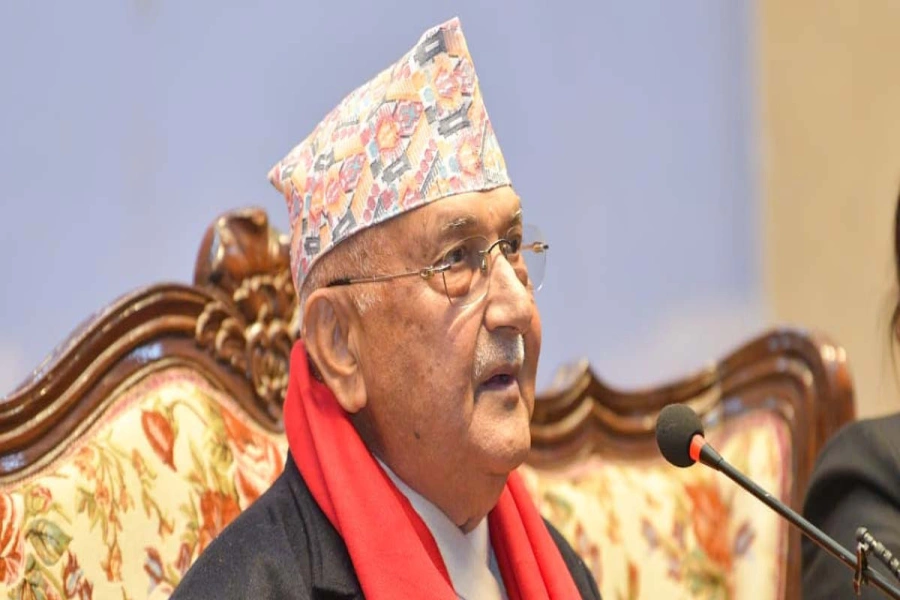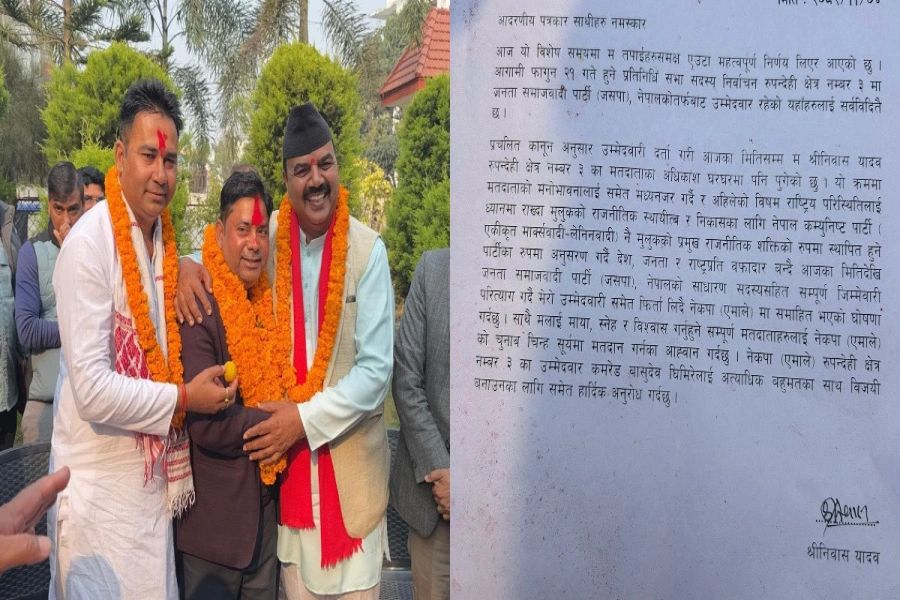KATHMANDU, Feb 11: The National Assembly unanimously passed a bill on Monday, placing the Media Council under executive control instead of establishing it as an autonomous body for the overall promotion of journalism in the nation. With this bill's approval, the council now holds fewer powers than the Press Council previously exercised.
The National Assembly unanimously passed the bill after its Committee for Legislation Management approved it. The government registered the bill in the National Assembly on April 18, 2024.
Despite holding discussions with various stakeholders, the Committee for Legislation Management approved the bill without incorporating their suggestions, keeping the council under government control.
Stakeholders urged lawmakers to assign the responsibility of recommending the council's chairperson and members to a committee comprising the Speaker, the National Assembly Chairperson, and the Chairperson of the parliamentary committee overseeing communications. However, the bill ignores this demand.
Instead, the National Assembly removed the recommendation committee entirely and gave the government direct authority to appoint council members.
When the government introduced the bill in Parliament, it included Section 6 (2), which proposed a three-member recommendation committee to appoint the council's chairperson and members. The Secretary of the Ministry of Communications would lead this committee, with an expert appointed by the government and the Joint Secretary of the Ministry of Communications and Information Technology as members.
‘Puppet Theater Workshop’ begins

After facing opposition, the government agreed to remove the recommendation committee, and the Committee for Legislation Management eliminated it. However, the government kept the authority for itself instead of transferring it to Parliament, according to a member of the Committee for Legislation Management.
Lawmakers proposed an amendment requiring a committee, led by either the Speaker or the National Assembly Chairperson, to recommend appointments, but the bill did not incorporate this change.
On the other hand, former President of the Federation of Nepali Journalists (FNJ), Suresh Acharya (now Chief Commissioner of the National Information Commission), led a government-formed committee to draft the Media Council Bill. The committee recommended placing the Media Council under parliamentary authority instead of government control.
The draft proposed that a committee comprising the National Assembly Chairperson, the Minister of Communications, and the Chairperson of the parliamentary committee overseeing communications should recommend council officials.
However, the government ignored this suggestion when introducing the bill and instead formed a recommendation committee led by the Secretary of the Ministry of Communications.
The Committee for Legislation Management of the National Assembly held discussions with media experts and stakeholders after receiving the bill. Stakeholders suggested that the council should be placed under the recommendation of the Speaker or the National Assembly Chairperson, rather than under the leadership of the Secretary of the Ministry of Communications, to ensure its autonomy.
The Press Council also demanded that the Media Council Bill include new media under the definition of mass communication. The council has been regulating new media through its own procedures, but the bill fails to incorporate these regulations, according to Press Council Chairperson Bal Krishna Basnet.
The National Assembly passed a bill that defines "mass media" as electronic or print media, operated by the government, community, or private sector, and established to transmit information and messages, as well as produce, publish, and broadcast such content. However, the Press Council defines mass media, through its guidelines, as institutions and services that produce, distribute, and transmit news, information, and opinion-based programs via newspapers, radio, television, online platforms, news agencies, films, documentaries, and internet media operating in Nepal.
The government will appoint the chairperson of the council. The president of the FNJ will serve as a member, along with an authorized member appointed by the ministry's joint secretary. The council will include representatives from print journalism, online journalism, radio, television, publishers, editors, and labor journalists. It will have at least seven members, including a minimum of three women, with one member representing each province. Additionally, the council will include three members representing the audience, readers, and listeners of the media, instead of just one, with at least one woman included.
The bill states that until the chairperson is appointed, the council's senior-most member will preside over it, and the Ministry of Communications will appoint an acting chairperson. If the chairperson is reinstated after suspension, they will automatically resume their previous position.
The National Assembly's bill removes the provision requiring the Media Council to publicly announce a journalist’s violation of orders, directives, or code of conduct. Instead, it mandates the council to keep a record of journalists and publish the details in its annual report. Under the bill's provisions, the council will take action against media institutions, mass media outlets, and affiliated journalists, including issuing warnings, suspending press identification cards for up to one year, and imposing other disciplinary measures.
The bill requires that the chairperson of the council be either a former Supreme Court judge or someone with a bachelor’s degree and at least 15 years of experience in journalism. Members must have at least 10 years of experience in communications, management, law, information technology, literature, or the social sector. The chairperson must be at least 40 years old, while members must be at least 30 years old. The term for both the chairperson and members is four years, and they may be reappointed for one additional term.
The bill amends Section 16(1), requiring the council to create and issue a code of conduct in consultation with the FNJ, rather than issuing it unilaterally. The term "Media Council" will be replaced with "Mass Media Council." National Assembly members have argued that the Media Council, as an autonomous body, cannot maintain professional and ethical standards in journalism or promote accountable journalism.






































